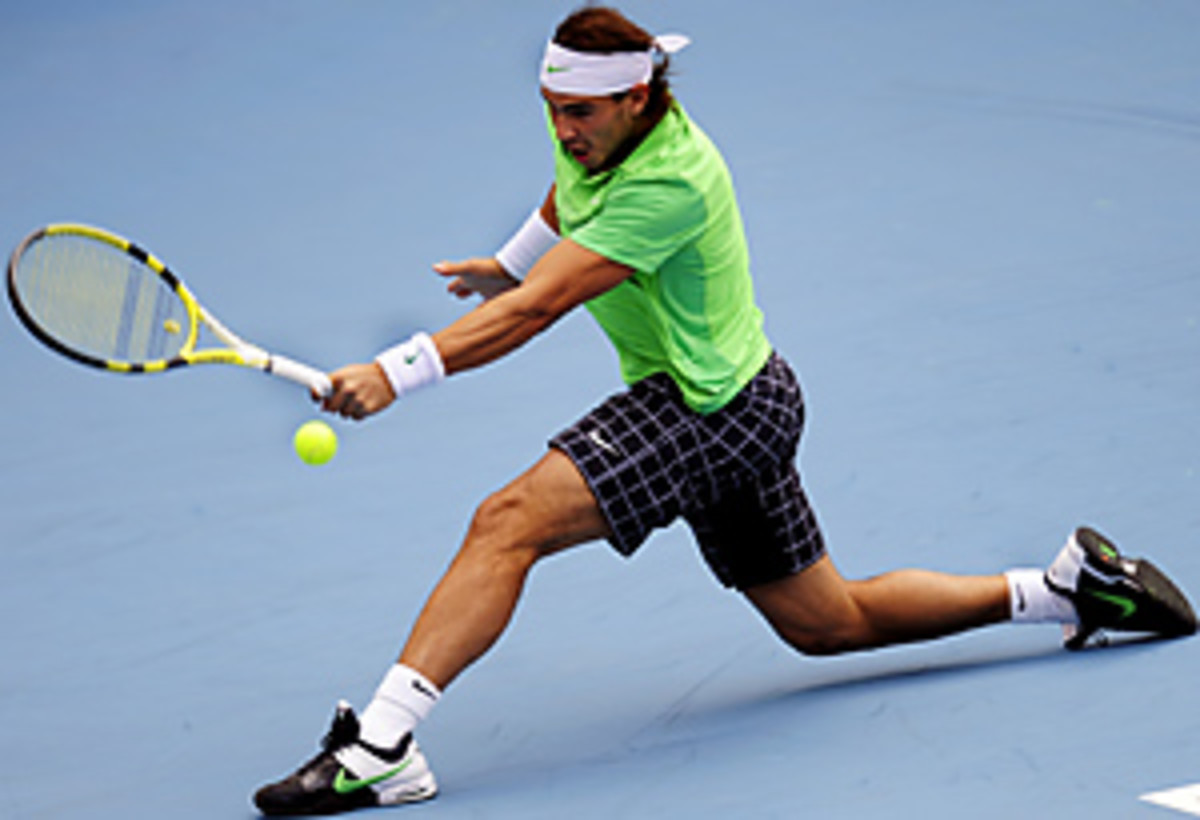WTA compellingly unpredictable; some concerns about Nadal
1. Get me rewrite! For months now, the WTA has been less stable than AIG's stock price. But the hits keep coming. Dinara Safina lost to an unknown player yet again -- the latest being wild card Zhang Shuai in the second round of the China Open -- and surrendered the top ranking to Serena Williams. However, Serena didn't fare too well herself, falling in the third round to Nadia Petrova in a match that turned on ... wait for it ... a hotly disputed line call. Maria Sharapova ran out of steam in a third-round loss to Peng Shuai. Venus Williams was upset by Russian teenager Anastasia Pavlyuchenkova for the second time in a week. And Svetlana Kuznetsova returned from the deep freeze to win the Beijing title. Inasmuch as budget cuts are looming at WTA HQ, here's a plea to spare the tour's scriptwriter. Week in and week out, the material is reliably riveting.
2. If Rafael Nadal's career were traded publicly, the short sellers would be out in full force come fall. Mr. October, he ain't. As a matter of ritual, Nadal's results go off a cliff in the autumn, a function of the grueling, violent tennis he plays in the first half of the year. Still, the state of Nadal's game -- and, more specifically, his body -- is more than a little troubling.
After missing June and July with knee injuries, Nadal returned for the U.S. hard-court swing, but his progress was undone by an abdominal injury. Clearly injured in the U.S. Open semifinal, he offered little resistance against Juan Martin del Potro. Last week he was thrashed in a similar fashion, mustering just four games against Marin Cilic in a semifinal in China. While Nadal abides by the "jock code" and doesn't attribute defeat to injury, it's clear he is playing hurt. (The stats don't lie either: He had zero aces and lost the majority of points on his serve against Cilic. That's saying something.) When one of the sport's most magnetic figures -- a supreme athlete and consummate professional -- simply cannot make it through a season abiding by the entry rules as currently written, think it might be time to rethink the schedule?
3. As the seasons wind down, it's an appropriate time for players to take stock of their careers. For most, it means plotting for 2010 and contriving a playing schedule that enables them to maximize gain and minimize risk, usually in the form of injury or emotional fatigue. For others, particularly on the wrong side of 30, it entails deciding whether to soldier on or step away.
Fabrice Santoro, Marat Safin, Nathalie Dechy, Ai Sugiyama and Denmark's Kristian Pless have gently informed us of their departures. It will be interesting to see which of their colleagues join them. An online BBC sports poll last week asked readers: "Do you think Amelie Mauresmo will call it a day?" Ultimately, though, these are deeply personal decisions that depend on what answers the athletes get when they ask the tough questions of themselves.





